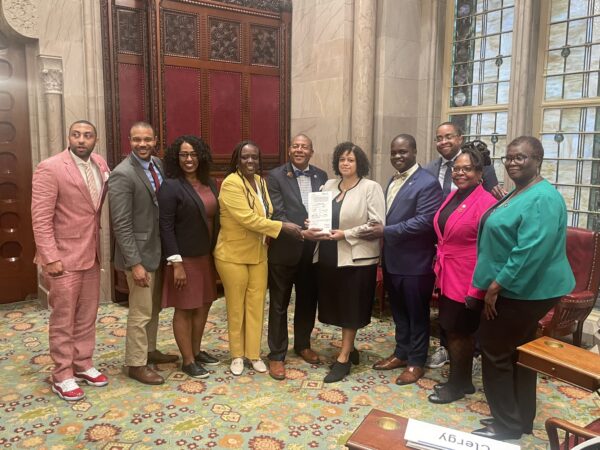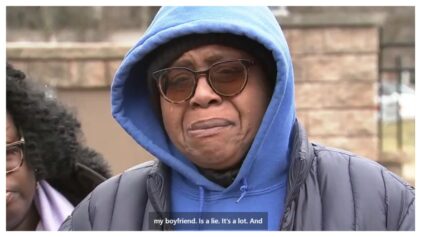State legislators in New York have passed a bill to launch a commission that will look at the lingering effects and generational impacts of slavery and possibly explore reparations for descendants of enslaved Africans.
The bill was passed after an hours-long debate in the state Assembly. Once it passed the state Senate’s floor hours later, it was sent to Gov. Kathy Hochul’s desk for her signature.
The legislation would create a group to not only research the pervasive economic, political, educational, and social disparities that stem from the effects of slavery but also examine the extent to which the federal and state government supported the institution of slavery and the current condition of residents of African descent in New York state.

Upon completion of this examination, commission members would recommend “appropriate remedies and reparations” as well as any other “laws, policies, programs” and projects that might be enacted by law. Those reparations could come in the form of monetary compensations for New York’s Black residents. However, nothing is binding, meaning state lawmakers won’t be mandated to vote on the recommendations immediately.
“Reparations is about more than monetary compensation — it’s about atoning and a guarantee of non-repetition,” Assemblymember Michaelle Solages said. “We need to change our political structures and laws to ensure Black New Yorkers are empowered. This is an important step in changing a long history of systemic racism and discrimination.”
The first enslaved Africans arrived at the southern tip of Manhattan Island in the 1620s. It wasn’t until 1817 that New York’s state legislature enacted a bill that freed the state’s enslaved people, but the statute wasn’t enforced until 1827.
If Hochul signs the bill, it will make New York the second major state to study whether to issue reparations. California is the first state to lead this particular charge. In 2020, state legislators created a task force to study reparations. Now California is wrestling with a decision over whether to issue some residents as much as $1.2 million in reparation payments.
New Jersey and Vermont are a couple of other states that have considered probing the possibility of issuing reparations. However, neither state has passed legislation on the matter.
Black Caucus members in New Jersey introduced a bill in 2019 that would create a task force to study the need for reparations, but the initiative was unsuccessful since the bill never received so much as a committee hearing.
City council members in the town of Burlington, Vermont voted unanimously to pass a Reparations Resolution in 2020, instituting a task force to study Vermont’s part in chattel slavery and how the city might issue reparations.
The first city in the U.S. to make reparations in the form of a $10 million housing project to Black residents was Evanston, Illinois, in 2021 in which they would grant $25,000 payments to residents strictly for home repairs and property costs. This year, the city council members voted to expand the program by providing a direct cash payout option through the housing program to those who qualify.
A decades-old proposal to create a federal commission studying reparations has stalled in Congress, according to The Associated Press. However, legislation has been reintroduced in recent years at the federal level to get that commission up and running.
New Jersey Sen. Cory Booker introduced a bill to jumpstart a commission earlier this year. Just last month, Missouri Rep. Cori Bush put forth a bill calling for $14 trillion in reparations for Black Americans as atonement from the federal government for slavery.


